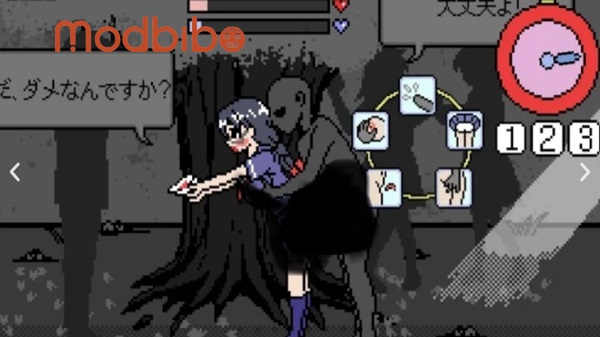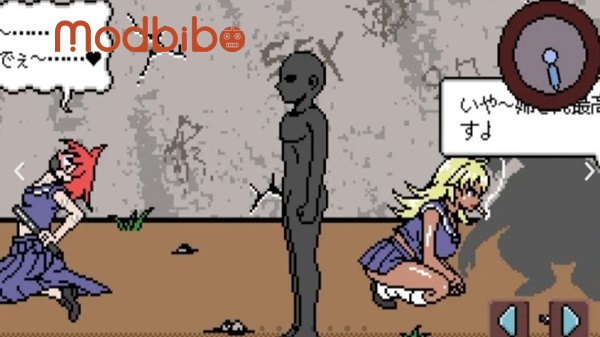
Tokitome Man Lifespan
Advertisement
Games Overview
Explore Tokitome Man’s Lifespan APK, a deep life-simulation game that follows one character from childhood to old age through meaningful choices, emotional storytelling.
Table of Contents
Tokitome Man’s Lifespan APK: A Deep, Reflective, And Surprisingly Addictive Life-Simulation Experience
Ever wished life came with a rewind button, a pause menu, or at least a tutorial mission that wasn’t just “figure it out,” Tokitome Man’s Lifespan APK feels like the kind of game that whispers, “Don’t worry, I got you.” It blends story-driven simulation with emotional decision-making in a way that hits closer to home than most mobile games dare to attempt. It’s not your typical mindless tap-and-go experience; instead, it gives you that slow-burn journey that sneaks under your skin and stays there long after you close the app.
At its core, the game explores a single human lifetime—how it unfolds, transforms, collapses, and sometimes surprises you. You guide a character from birth to death, making choices that orbit around relationships, career, personal struggles, identity, health, crisis points, and the bittersweet reality that time doesn’t stop for anyone. The real magic of Tokitome is how it captures not just the “what happens,” but also the feeling of living through each chapter.
So let’s break down what makes this game more than just another life sim—and why it’s picking up buzz for being unexpectedly moving and ridiculously immersive.

A Fresh Take on Life Simulation Games
Life simulation games are everywhere. You’ve got the chaotic sandbox ones, the goofy comedic ones, the business-management-masquerading-as-life ones, and a few heartfelt story-driven titles sprinkled here and there. Tokitome Man’s Lifespan stands out because it takes storytelling dead seriously. Every choice feels like a puzzle piece in a bigger narrative, and the pacing mimics the actual stages of life in a way that hits different.
No flashy gimmicks. No forced humor. No weird randomness just for shock value.
Instead, the game leans into grounded, slice-of-life realism. Your character grows up in a world that feels real—one where moments are messy, complicated, and deeply human.
The tone is reflective and sometimes heavy, but never to the point of being melodramatic. It’s like the developers wanted to portray life with sincerity, while still giving you enough control to explore different paths without feeling boxed in.
Advertisement
Storytelling That Follows You Through Every Age
One of the game’s biggest strengths is how it handles the passage of time. You don’t just “level up” from child to teen to adult—you feel the transitions. The writing style adapts to the life stage; childhood has a wonder-filled simplicity, adolescence becomes more turbulent and introspective, adulthood grows heavier and more layered, and old age slows down with an emotional realism that honestly might catch you off guard.
Childhood:
You make small decisions—friends to play with, hobbies to pick up, how you handle family dynamics. The game subtly builds your personality traits from these early choices.
Adolescence:
Suddenly, emotions intensify. Your character starts forming beliefs, relationships, ambitions, and insecurities. The game becomes more choice-driven here, reflecting how teen years shape the foundation of adult life.
Adulthood:
This is where the game shines. You juggle relationships, career choices, financial changes, life crises, health decisions, and the complexities of responsibility. The branching paths multiply, and your earlier decisions start echoing into the present.
Old Age:
The tone shifts. Slower, softer, more reflective. You look back on the life you’ve built—who stayed, what mattered, what didn’t. There’s this quiet beauty to the pacing that gives the final chapters emotional weight.
By the time you hit the end of the lifespan, the journey feels cohesive. Not perfect, not polished—human.

A Choice-Based System That Actually Feels Meaningful
A lot of story-based games claim your choices matter, but you make a wrong dialogue pick and suddenly you’re in a completely off-brand ending. Tokitome doesn’t do that. Instead of forcing dramatic consequences, it builds your character in a steady, believable way.
Instead of “pick the right option or you lose,”
it's more like:
“Who do you want this person to become?”
Your choices influence:
-
emotional maturity
-
relationships and breakups
-
career success or stagnation
-
mental wellbeing
-
moral alignment
-
financial stability
-
family bonds
-
personal regrets or accomplishments
It’s not about winning the game—it’s about crafting a life that feels honest to the person you’re shaping.
The gameplay loop rewards curiosity. Taking risks or choosing vulnerable paths often unlocks relatable, though sometimes painful, storylines. The game isn’t afraid to explore themes like loneliness, ambition burnout, romantic disappointment, or the fear of aging. But it also celebrates success, love, healing, and meaningful connections.
Character Customization With Real Personality Progression
Customization isn’t just about appearance here—it’s about emotional and psychological growth. While you can adjust the basics like looks and personality traits at the start, the more interesting part is how your character evolves based on accumulated experiences.
If you choose to isolate yourself early on, your character may struggle with social challenges later.
If you pursue career relentlessly, your relationships may take a back seat.
If you avoid conflict, you might end up with suppressed regrets that appear in later chapters.
It’s basically a “butterfly effect simulator,” but done with subtlety. The progression system never feels punishing—just authentically linked to the cause-and-effect nature of life.

The Art Style And Atmosphere Hit Harder Than Expected
Tokitome Man’s Lifespan has a distinct visual vibe: clean, soft, and minimalist. Nothing flashy, nothing hyper-realistic. Instead, the visual design lets the narrative breathe, offering a calm atmosphere where the focus stays on emotion and storytelling.
The color palette shifts through life stages:
Advertisement
-
warmer tones for childhood
-
cooler, moodier shades for adolescence
-
steady neutrals for adulthood
-
faded, nostalgic hues for old age
It’s subtle, but it adds layers to the experience—you feel the emotional temperature change without the game having to spell it out.
The sound design is just as careful. Gentle ambient tracks, soft background themes, and emotionally tuned cues help reinforce mood without overwhelming the player. Everything feels intentional, like the game wants to guide your feelings but never manipulate them.
Replay Value: A Life You Want To Revisit (But Not Always Lightly)
Tokitome Man’s Lifespan is one of those games you finish and go,
“Okay… I need a minute.”
Then maybe an hour.
Then for some players, a whole day.
But the replay value is huge because there are countless paths to explore. Every new run lets you try out different life choices, new personality builds, and alternate relationship arcs. You can aim for:
-
a career-focused life
-
a family-centered life
-
a rebellious, chaotic life
-
a peaceful, introspective life
-
a financially ambitious life
-
a socially driven life
-
a creatively expressive life
Each playthrough reveals new dialogue, new scenes, and new turning points that weren’t available in previous runs. It’s the kind of game you keep coming back to when you want to experience a different version of “what could’ve been.”
That said, it’s not a casual “play while half-asleep” game. Emotional investment is kind of the whole point. So while replay value is undeniably strong, the game hits you with the kind of feelings that might make you want breaks between playthroughs.
Why This Game Works So Well For A Gen Z Audience
The game’s themes line up with the stuff Gen Z constantly thinks about: identity exploration, self-worth, burnout, relationships, the fear of wasted time, and the pressure to figure life out in a world that’s moving way too fast.
Tokitome understands the vibe of “questioning everything” and turns it into a narrative mechanic. You don’t just build a character—you reflect on yourself in the process. Without being preachy or dramatic, the game nudges you to think about the kind of person you are, the choices you value, and the meaning you assign to your own path.
It’s introspection dressed up as entertainment, but not in a heavy-handed way. That’s exactly why it resonates.
Final Thoughts
Tokitome Man’s Lifespan APK isn’t trying to be the flashiest, loudest, or most chaotic life sim out there. Instead, it gives players emotional honesty, slow storytelling, and a surprisingly intimate look at the journey from birth to old age. It’s reflective without being depressing, grounded without being boring, and emotional without being manipulative.





